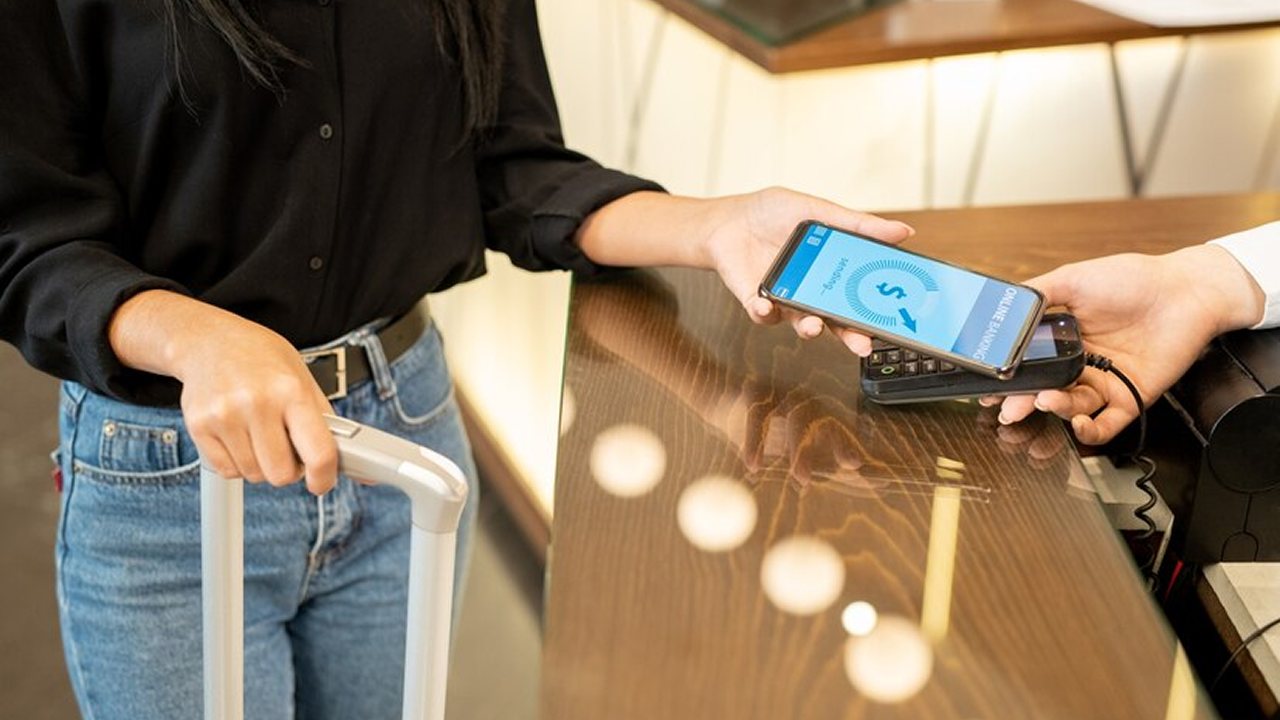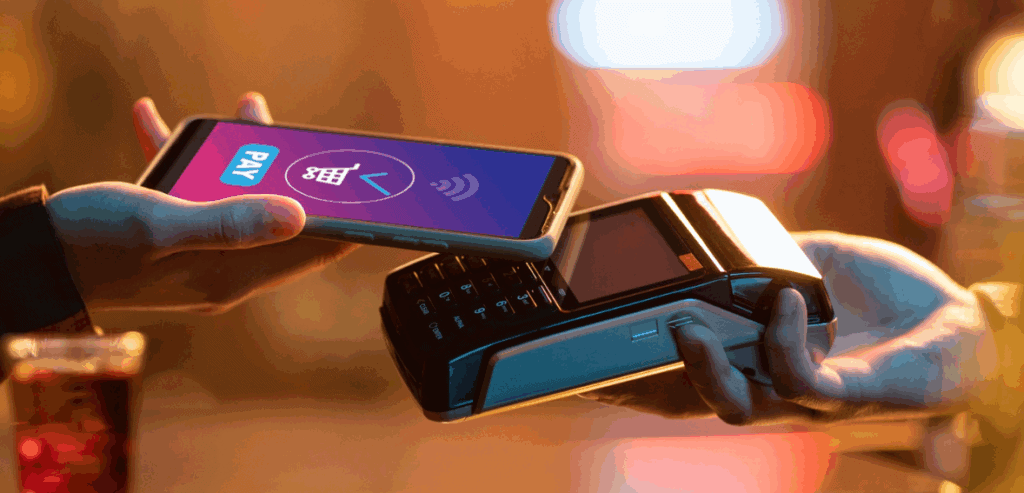
By Sharon Hudson July 9, 2025
The hospitality industry has always evolved in response to guest expectations, travel behaviors, and broader shifts in society. One of the most striking transformations in recent years has been in how hotel guests prefer to pay. From cash and card swipes at the front desk to seamless digital payments via mobile wallets and apps, the evolution of hotel payment preferences reflects a larger change in consumer attitudes toward convenience, speed, and security.
Today’s traveler wants more than a comfortable bed and responsive service. They want fast check-ins, instant confirmations, and payment options that match how they live and shop in everyday life. For hoteliers, adapting to these changes isn’t just a matter of keeping up with trends—it’s about remaining relevant and competitive in a digitally driven world.
The Traditional Hotel Payment Model
For decades, hotel payments followed a well-defined script. Guests would book a room by phone or in person, provide a credit card at check-in, and settle the bill at the front desk upon departure. While functional, this process had its limitations.
Manual Entry and Paper Trails

Hotel staff often had to manually enter guest payment details into a system or record them on paper forms. This was time-consuming, prone to error, and offered minimal data security. Guests would wait at the front desk while transactions were authorized and receipts printed.
Though this system offered a personal touch, it lacked the efficiency and flexibility that today’s travelers have come to expect.
Delayed Charges and Disputes
In many traditional setups, incidentals like room service or minibar usage were billed at checkout, often leading to disputes or delays. If a guest wanted to split the bill or change payment methods, the process could be cumbersome.
This payment model also created back-office inefficiencies, requiring staff to reconcile receipts manually and handle cash or check deposits.
The First Digital Shift: Credit Card Processing and POS Systems
The introduction of electronic point-of-sale (POS) systems marked the first major step toward modernizing hotel payments. These systems enabled faster card processing and automated receipt generation.
Faster Front Desk Transactions
Hotels adopted integrated POS terminals that could quickly process credit and debit card payments. This reduced wait times and simplified accounting. Receipts were stored digitally, helping with record-keeping and compliance.
Greater Card Acceptance
As credit card usage grew globally, hotels began accepting a wider range of cards. International travelers benefited from being able to pay in their preferred currency or card brand, enhancing their booking experience.
Security Improvements
Electronic processing brought improvements in payment security, including better encryption and fraud detection. While not foolproof, it offered more protection than the manual systems of the past.
However, while POS systems made transactions smoother, they still relied heavily on physical interaction. Guests had to be present, cards had to be swiped or inserted, and check-in remained tied to the front desk.
The Mobile and Contactless Era
The explosion of smartphones and the rise of mobile wallets introduced a new chapter in hotel payment evolution. These technologies have redefined convenience and changed how guests engage with hotels from the moment they book to when they check out.
Mobile Wallets and Tap-to-Pay

Platforms like Apple Pay, Google Pay, and Samsung Pay enable guests to pay with a tap of their phone or smartwatch. Hotels with compatible terminals can offer faster and more hygienic transactions. This is especially appreciated by guests traveling light or wary of sharing physical cards.
Mobile Check-In and App-Based Payments
Many hotels now offer mobile apps that allow guests to check in, choose their room, and pay without ever approaching the front desk. These apps securely store guest profiles and hotel payment preferences, streamlining every transaction.
For returning guests, this creates a personalized and efficient experience. Their hotel payment history, preferred card, and even loyalty points can be integrated into one seamless flow.
QR Code Payments
In regions where mobile wallets are less prevalent, QR-based systems have emerged as a flexible alternative. Guests scan a QR code at the hotel desk, restaurant, or minibar and pay instantly via linked bank apps. This method is especially common in parts of Asia and is gaining traction elsewhere.
Guest Expectations Are Changing
The digital habits developed in retail, food delivery, and ride-sharing now influence how travelers expect to interact with hotels. This shift in guest behavior is one of the strongest drivers of payment innovation in hospitality.
Speed and Convenience
Today’s guests value their time. They expect fast, reliable service, and payments are a big part of that. Long queues at the front desk or delays during checkout are increasingly seen as unacceptable.
A guest who can check in via an app, unlock their room with their phone, and pay digitally is more likely to rate their stay positively and return.
Trust in Digital Platforms
Concerns over mobile security have diminished as digital wallets become more common. Guests now trust biometric verification, encrypted tokens, and cloud-based hotel payment systems more than handing over a physical card.
Hotels that offer secure digital payment options position themselves as modern and trustworthy in the eyes of these guests.
Globalization of Payment Preferences
As international travel resumes and grows, hotels must cater to diverse payment behaviors. A guest from China may prefer WeChat Pay, while one from Europe may rely on contactless debit. Offering flexible options is no longer just nice to have—it’s essential for global appeal.
Operational Benefits for Hotels
The evolution of hotel payment preferences is not only about guest experience. It also brings measurable operational advantages for hotels, especially boutique and independent properties seeking to compete with larger chains.
Reduced Front Desk Workload
With mobile check-in and in-app payments, staff can focus on high-value interactions rather than repetitive administrative tasks. This makes small teams more efficient and improves the overall service atmosphere.
Improved Cash Flow and Revenue Capture
Digital payments are processed instantly, allowing hotels to access funds faster. Pre-authorizations and incidentals are easier to manage through automated systems, reducing missed charges and billing errors.
Some platforms even allow for real-time upgrades or in-stay purchases, boosting revenue without needing a hard sell from staff.
Easier Accounting and Reporting
Integrated hotel payment systems sync with property management software to provide real-time revenue data, reconciliation reports, and guest spend insights. This reduces end-of-day administrative work and improves decision-making across departments.
Challenges in Adopting New Payment Technologies
Despite the clear advantages, not all hotels are quick to adopt modern payment systems. Several challenges can slow or complicate the transition.
Cost and Infrastructure
Smaller properties may find it expensive to upgrade hardware, install new software, or train staff. Additionally, rural or older buildings may lack the connectivity or infrastructure to support digital solutions effectively.
However, scalable cloud-based systems and subscription models are helping to lower the barriers to entry.
Integration Issues
Not all payment platforms integrate easily with existing property management or booking systems. Hotels must choose providers that offer robust APIs and support to ensure smooth operations.
The lack of integration can lead to duplicate data entry, errors, and inefficiencies—defeating the purpose of modernization.
Security Concerns

While mobile wallets are secure, improper implementation can introduce vulnerabilities. Hotels must ensure that all systems are PCI DSS compliant, use tokenization, and train staff to recognize payment-related scams or fraud.
The Future of Hotel Payment Preferences
As technology continues to advance and guests grow more comfortable with digital experiences, the future of hotel payments will likely center around automation, personalization, and flexibility.
Voice and Biometric Payments
Voice-activated payments and biometric authentication (like facial recognition or fingerprint scanning) may soon become mainstream. These technologies offer both convenience and security, especially for repeat guests or loyalty members.
Embedded Payment Experiences
Hotels are moving toward unified guest platforms where everything from room booking to spa appointments to dining can be managed and paid for within a single ecosystem. This embedded approach ensures a smooth, intuitive journey with minimal interruptions.
Cryptocurrency and Alternative Payments
While still niche, some hotels are beginning to accept cryptocurrencies or blockchain-based tokens. As regulatory clarity improves and demand grows, this could become a viable alternative for tech-forward travelers.
Cross-Channel Consistency
Guests expect consistency across devices and channels. Whether booking from a desktop or smartphone, calling the front desk, or using a kiosk, their hotel payment experience should feel familiar and unified. Hotels that prioritize omnichannel design will stand out in the market.
Best Practices for Hoteliers
To keep pace with evolving guest expectations and payment trends, hotels should adopt the following best practices.
Offer Multiple Payment Options
Support credit and debit cards, mobile wallets, QR code payments, and even cash if required. Flexibility builds trust and ensures no guest is left behind.
Secure Your Payment Environment
Invest in PCI-compliant systems, end-to-end encryption, and tokenization. Regularly update software and train staff in security protocols to protect guest data and hotel assets.
Integrate with Core Systems
Choose payment platforms that integrate with your PMS, booking engine, CRM, and accounting tools. The more connected your ecosystem, the more efficient your operations.
Prioritize the Guest Experience
Technology should enhance—not complicate—the guest journey. Make sure your hotel payment process is intuitive, fast, and supported by helpful staff when needed. Provide receipts digitally and allow guests to review charges in-app before checkout.
Conclusion
The evolution from front desk payments to mobile wallets represents a broader transformation in hospitality. As guests become more digitally fluent, their expectations around speed, security, and simplicity continue to rise. Hotels that embrace this evolution are better positioned to delight their guests, streamline operations, and future-proof their brand.
For boutique and independent hotels especially, the ability to offer modern hotel payment options can become a key differentiator. It’s not about replacing service with technology but enhancing service through smarter, faster, and more secure transactions. From the moment a guest books a room to the time they check out, every payment interaction is an opportunity to build trust, loyalty, and satisfaction.
The future of hotel payments is here. It fits in a pocket, works in real time, and it’s shaping the way hospitality feels, functions, and flourishes.